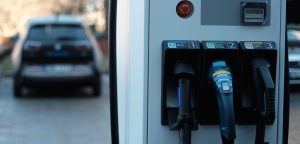 Electric vehicles (EVs) are starting to revolutionize the car market in 2018, with BMW recently announcing new designs for electric versions of a dozen of its leading models. The BMW effort is being replicated across the car market by its competitors, as technological advances transform vehicle designs in the biggest shift to hit ground transport since the invention of the internal combustion engine. Even roads are changing with the gradual arrival of the energy generating and storing “solar panel roads.” These new EVs come with one drawback from carmakers’ perspectives however; they require a great deal of the rare mineral cobalt. A typical EV battery needs 21kg of cobalt to function properly, and as the mining sector has woken up to the prospect of fleets of EVs on our roads by the 2020s, the price of cobalt has spiked.
Electric vehicles (EVs) are starting to revolutionize the car market in 2018, with BMW recently announcing new designs for electric versions of a dozen of its leading models. The BMW effort is being replicated across the car market by its competitors, as technological advances transform vehicle designs in the biggest shift to hit ground transport since the invention of the internal combustion engine. Even roads are changing with the gradual arrival of the energy generating and storing “solar panel roads.” These new EVs come with one drawback from carmakers’ perspectives however; they require a great deal of the rare mineral cobalt. A typical EV battery needs 21kg of cobalt to function properly, and as the mining sector has woken up to the prospect of fleets of EVs on our roads by the 2020s, the price of cobalt has spiked.
Early in January, business outlet Bloomberg reported the price had climbed from $600 to $1700 in 16 months. There is another problem for carmakers however: 60 percent of all known cobalt supplies come from the unstable and corrupt Democratic Republic of Congo (DRC). War is also brewing there after the DRC’s autocratic leader President Joseph Kabila refused to step down at the end of his term in 2016. With fossil fuels falling out of favor due to their environmental impact, carmakers do not have the luxury of refusing to engage with the DRC, but how they avoid tying themselves too tightly to the decaying Kabila regime will be a crucial consideration. In the interim period between the end of fossil fuels’ monopoly of the motor industry and the rise of credible alternatives to cobalt (recycling dead batteries is often mentioned), the DRC will have a disproportionate amount of international leverage relative to its tiny and highly dysfunctional economy.
